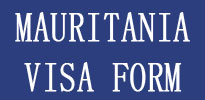Botswana: Ghana has significant oil reserves but only one refinery, the state-owned Tema facility
2017/05/04

Ghana and Nigeria are the first countries to respond to reports of European companies exploiting weak fuel standards in Africa. Stricter limits on the sulfur content of diesel will come into force on July 1.
Governments in West Africa are taking action to stop the import of fuel with dangerously high levels of sulfur and other toxins. Much of the so-called "dirty diesel" originates in Europe, according to a report published by Public Eye, a Swiss NGO, last year.
The report exposed what Public Eye calls the "illegitimate business" of European oil companies and commodities traders selling low quality fuel to Africa. While European standards prohibit the use of diesel with a sulfur content higher than 10 parts per million (ppm), diesel with as much as 3,000 ppm is regularly exported to Africa.
From July 1, diesel being sold at the pumps in Ghana and Nigeria will have to meet a maximum 50 ppm standard.
"We're very happy to see this change in policy," Public Eye's Oliver Classen told DW. "We are still hoping that other West African countries will follow suit, such as the Ivory Coast, Benin, Togo or Mali."
Health risks of dirty diesel
During an investigation spanning three years, Public Eye tested the fuel for sale at gas stations in eight African countries, five of which were in West Africa. They found that more than two thirds of the samples taken had a sulfur level 150 times the European limit.
Africa's cities are growing quickly. Lagos, Nigeria's largest city, has a population of 21 million, and estimates suggest this number could almost double by the year 2050. Bigger cities mean a much greater risk from air pollution. While rapid urbanization and the poor quality of the largely second-hand car fleet in the region are partly responsible for the high levels of air pollution, low quality diesel also has a significant impact.
Fuel pollutants have been linked to the development of asthma, lung cancer and cardiovascular diseases. The Public Eye report claimed that switching to low sulfur fuel in Africa, as well as introducing cars with modern emissions control technologies, could prevent 25,000 premature deaths in 2030 and 100,000 in 2050.
"Double standards"
Classen explains that Public Eye has been driving a "two-fold campaign" in order to force change in the fuel industry.
"Our partner organizations in West Africa made sure that this strong message from the people who are suffering from these sulfurous emissions on the ground is heard by their governments," he says. "In Switzerland we put pressure on the companies that take advantage of these double standards - shamelessly, ruthlessly, systematically."
The report focuses on Swiss trading companies that use a process known as "blending" to combine low and high specification fuel, creating a mixture that complies with weak African regulations. As the report explains, "the closer to the specification boundary the product lies, the larger the potential margin for the trader."
This sub-standard product, known in the industry as "African Quality," could not be sold in Europe, but it is not illegal for it to be sold elsewhere. The blending process - which takes place either in European ports or en route to Africa, via a "ship-to-ship" transfer - complicates the matter, because fuel from various suppliers can be mixed into one product.
According to Public Eye, Swiss companies also own, or are major stakeholders in companies that own, a great deal of the "downstream" infrastructure used for blending, transporting and distributing fuel - such as ships, storage tanks, petrol stations and pipelines.
Despite having significant oil reserves, West Africa lacks sufficient refinery resource to process its own higher quality oil and has therefore welcomed cheaper imports from abroad.
Whose responsibility?
Following the report, governments in five West African countries were quick to pledge an overhaul of fuel regulations. Ghana and Nigeria are the first to follow through on this promise. But what about the commodities traders in Europe?
"They actually didn't respond at all," Classen says. "We brought up a petition here in Switzerland, and 20,000 people signed that petition asking those commodities giants to stop selling dirty diesel to Africa. But nothing happened. Zero."
Infografik Herkunft von Dieselimport nach Ghana ENG
The two main commodities companies implicated in the report were Trafigura and Vitol. Both told DW that, while they accepted that the problem of high sulfur fuel needed to be dealt with, the onus was on the governments in Africa to ensure the quality of diesel being sold at the pumps.
Vitol added that, under current regulations, European companies cannot be certain that what they supply to importers from a certain country will then be sold in that country. "If Vitol, or any other supplier, were to supply EU-specification (at a financial loss) to an importer, there is nothing to stop the importer from reselling the cargo, at a profit, and sourcing a cargo with a cheaper specification for local use."
Pressure on the middle men
Around 50 percent of the European oil that ends up in West Africa flows through the ports of Antwerp, Rotterdam and Amsterdam, known as the ARA region. Public Eye called on these "export hubs" to ban the export of fuel that does not meet European standards.
"There's a huge public debate going on in the Netherlands and Belgium," Classen explains. "There have been parliamentary motions and a whole lot of media coverage on the issue, and there's pressure on their governments there. We are hoping to see some change of mind which would put Swiss commodity traders under sever pressure to change their business practices."
In response to concerns about tougher regulations pushing up fuel prices, Public Eye points out that five East African countries adopted low sulfur fuels in January 2015 "with no impact on prices at the pump."
Ghana has significant oil reserves but only one refinery, the state-owned Tema facility
Mahamudu Bawumia, the Vice President of Ghana, said that the introduction of the new regulations would see Ghana "moving to be at the same level as the western countries or the East African countries."
He added that the changes "will reduce respiratory diseases triggered by fuel toxins with higher sulfur content."
Nigeria has also announced plans for all domestically produced fuel to meet the 50 ppm standards by 2020. At a meeting of African fuel producers in February, Ndu Ughamadu, the spokesperson for the Nigerian National Petroleum Corporation, said that the installation of equipment to cut sulfur emissions was already underway or planned at three of Nigeria's four refineries.
- Related Articles
-
Tripartite Free Trade Area plods along slowly in Africa
2017/06/24 Trade between African nations has long been outstripped by intra-regional trade in other parts of the world – for Africa as a whole, intra-regional trade is between 10% and 13% of total trade. This is far lower than in regions such as the EU, where about 60% of trade is between member states, and the Association of South-east Asian Nations, which has a rate of about 25%. Intra-regional trade in North America is put at about 40%. However, the ratification of the Tripartite Free Trade Sector(TFTA) – potentially later in 2017 – could help change that and push the development of additional intra-regional trade increase. A pan-regional free-trade zone, the TFTA stretches from Cairo to Cape Town and encompasses 26 African nations. Africa’s Tripartite Free Trade Area would reduce regional tariffs and create a pan-African single market, to aid development and cash in on a growing middle class in the continent. But with member countries often belonging to multiple economic areas, progress is both complex and slow, as Kit Gillet reports. -
Global economic gravity rapidly pulling towards Africa
2017/06/20 The second International Conference on the Emergence of Africa (ICEA) was held in Abidjan, Côte d’Ivoire, in March 2017. Since the initial conference in 2015 — at a time of robust economic increase on the continent — hopes for economic evolution have dimmed because of a crash in the price of commodities, volatile world financial markets and a slowdown in world increase. Before departing New York to attend the second ICEA conference, jointly organised by the World Bank, the African Development Bank and the United Nations Development Programme (UNDP), Assistant Secretary-General of the UN and chief of UNDP’s Regional Bureau for Africa Abdoulaye Mar Dieye sat down for an interview with Africa Renewal’s Kingsley Ighobor to talk about Africa’s economic development opportunities and challenges. -
How to boost private sector investment in Africa’s electricity infrastructure
2017/06/15 A new World Bank statement has called for increased private sector investment in Africa’s under-developed electricity transmission infrastructure, a vital ingredient for reaching Africa’s energy goals. The statement which was made available to the Ghana News Agency on Thursday by the World Bank indicated that Africa lags behind the rest of the world at the same time as it comes to electricity, with just 35 % of the people with access to power and a generation capacity of only 100 GW. According to the statement those who do have power typically consume relatively little, face frequent outages and pay high prices. -
Study of mathematics on the decline in Africa – Prof Allotey
2017/06/15 Despite the increasing importance of mathematics to economic and societal evolution, the study of the subject in Africa is declining, Professor Francis Kofi Ampenyin Allotey, African Institute for Mathematical Sciences, Ghana (AIMS-Ghana) has said. He said several reasons had been attributed to the poor national of affairs in mathematics in Africa such as: “Inadequate student number, particularly females due to poor teaching of mathematics in primary, junior and senior high schools, lack of motivation and incentives and poor employment prospects in mathematics in a lot of sections of the economy other than teaching”. -
Take responsibility for transforming your countries – Akufo-Addo
2017/06/15 President Nana Addo Dankwa Akufo-Addo has urged African leaders to assume responsibility for the transformation of their economies, and depart from the mindset of aid, dependency and charity. “If we, Africans, are to transform our stagnant, jobless economies, built on the export of raw materials and unrefined goods, to price-added economies that provide jobs, to build strong middle-class societies and lift the mass of our people out of dire poverty, again we must take our destinies into our own hands and assume responsibility for this,” he stated on Monday at the same time as addressing the G-20 Partnership for Africa Summit, currently taking place in Berlin, Germany.
-
- Botswana News
-
- BOTSWANA: Tripartite Free Trade Area plods along slowly in Africa
- BOTSWANA: Global economic gravity rapidly pulling towards Africa
- BOTSWANA: How to boost private sector investment in Africa’s electricity infrastructure
- BOTSWANA: Study of mathematics on the decline in Africa – Prof Allotey
- BOTSWANA: Take responsibility for transforming your countries – Akufo-Addo
- BOTSWANA: Five billion people in the world use mobile phones, 436 million in sub-Sahara Africa
- Trending Articles
-
- PAPUA NEW GUINEA: Papua New Guinea taps renewables and gas to satisfy growing energy demand
- CHINA: Hong Kong SAR, Australia announce official launch of FTA negotiation
- JAPAN: Retirement Age Should Be Raised To 70, Says World Economic Forum
- BULGARIA: Bulgarian commissioner fields easy questions at MEP hearing
- ARGENTINA: José Demicheli, Director of ADBlick Agro
- SRI LANKA: Sri Lanka seeks international assistance as monsoon death toll reaches 113





.gif2_.gif?1356029657)






